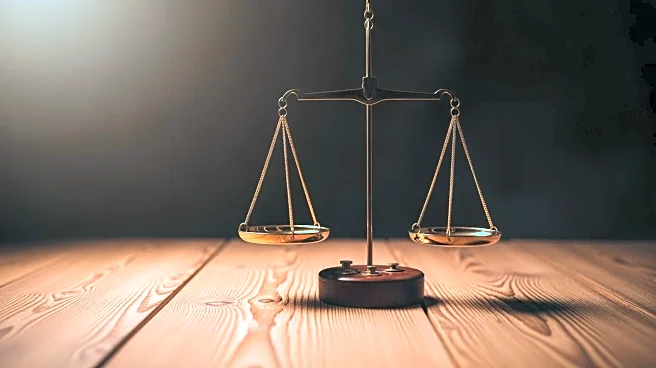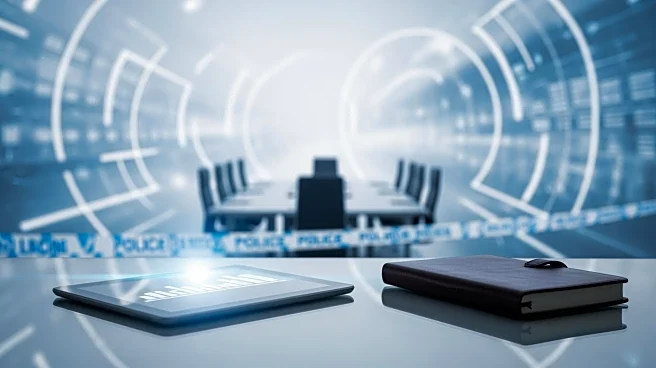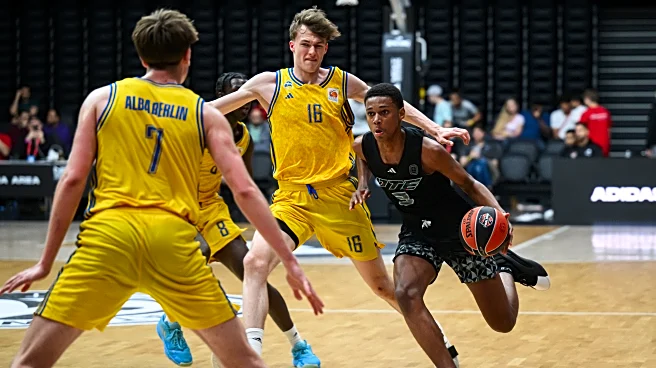What's Happening?
Ukraine is actively working to resume prisoner exchanges with Russia, aiming to bring home 1,200 Ukrainian prisoners, as announced by President Volodymyr Zelenskyy. The negotiations are being mediated
by Turkey and the United Arab Emirates, with Rustem Umerov, Secretary of Ukraine's National Security and Defense Council, leading the consultations. The exchanges are based on protocols established in Istanbul in 2022, which have facilitated sporadic swaps of thousands of prisoners between the two nations. Technical consultations are expected to finalize the procedural details, with hopes that the exchanges will allow Ukrainians to celebrate the upcoming holidays with their families. Meanwhile, Finland's President Alexander Stubb has expressed skepticism about a ceasefire in Ukraine before spring, urging European allies to maintain support despite challenges, including a corruption scandal in Kyiv.
Why It's Important?
The resumption of prisoner exchanges is a critical humanitarian effort that could significantly impact the lives of many families affected by the ongoing conflict. It represents a potential step towards de-escalation and peace negotiations, although broader geopolitical tensions remain high. The involvement of international mediators like Turkey and the UAE underscores the global interest in resolving the conflict. Additionally, Finland's call for continued support highlights the strategic importance of Ukraine in European security and the need for resilience against Russian aggression. The ongoing military actions, including drone strikes and energy infrastructure attacks, continue to strain Ukraine's resources and stability, emphasizing the urgency of diplomatic solutions.
What's Next?
Technical consultations are expected to take place soon to finalize the details of the prisoner exchanges. The success of these negotiations could pave the way for further diplomatic engagements between Ukraine and Russia. However, the broader geopolitical landscape remains complex, with Finland's President advocating for increased pressure on Russia to alter its strategic approach. The international community, including the U.S., may play a crucial role in influencing the dynamics of the conflict. Continued military actions and energy infrastructure attacks suggest that the situation remains volatile, and stakeholders will need to navigate these challenges carefully to avoid escalation.
Beyond the Headlines
The prisoner exchange talks highlight the intricate balance between humanitarian efforts and geopolitical strategies in conflict resolution. The involvement of multiple nations in mediation reflects the interconnected nature of global diplomacy. The ongoing conflict in Ukraine serves as a reminder of the broader implications of regional disputes on international stability and security. The resilience and endurance required by European allies, as noted by Finland's President, underscore the cultural and ethical dimensions of supporting a nation under siege. The situation also raises questions about the long-term impact of sustained military aggression on regional and global peace.











